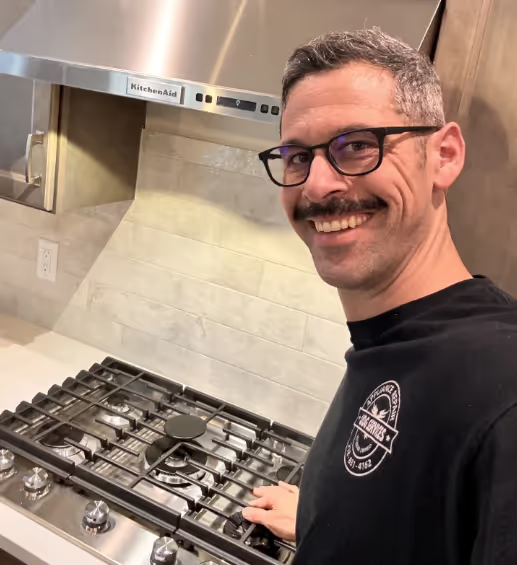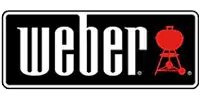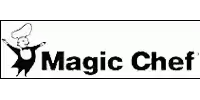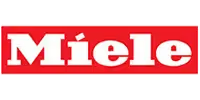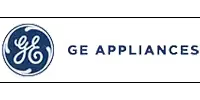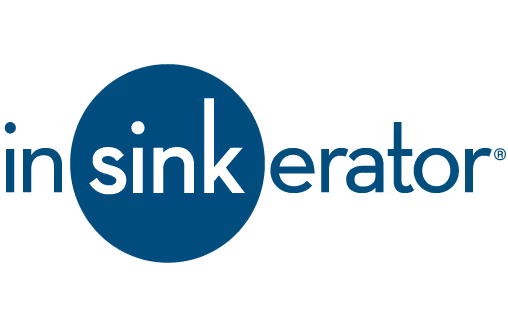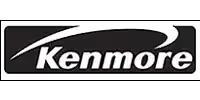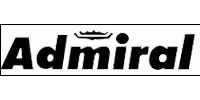The most expensive appliance repair is the emergency breakdown that could have been prevented. Preventive maintenance programs catch small problems before they become big ones, extend equipment life, and provide peace of mind that your appliances are operating safely and efficiently.
How Preventive Maintenance Works
Regular scheduled service includes thorough inspection, cleaning, testing, and adjustment of all critical components. Our technicians identify wear patterns, measure performance against specifications, and recommend repairs before failures occur. You address issues on your schedule, not during a crisis.
Benefits for Homeowners
Household appliances represent significant investments that should last many years. Preventive maintenance extends their lifespan, maintains energy efficiency, and prevents the inconvenience of unexpected breakdowns. Annual service for major appliances is a small investment with substantial returns.
Benefits for Businesses
Commercial operations face even higher stakes. Equipment downtime means lost revenue, potentially spoiled inventory, and customer impact. Preventive maintenance minimizes these risks while providing documentation that satisfies health code and insurance requirements.
What's Included
Maintenance visits include comprehensive inspection of all critical components, cleaning of areas that affect performance, testing of safety and operational systems, calibration where needed, and detailed reporting of findings and recommendations.
Flexible Scheduling
We work with you to schedule maintenance at convenient times. For businesses, we can often schedule after-hours service to avoid interrupting operations. For homes, we offer flexible appointment windows.
Investing in preventive maintenance is investing in reliability. Contact us to discuss a maintenance program tailored to your appliances and needs.
Maintaining commercial appliances through preventive maintenance is essential for business continuity and operational efficiency. Equipment failures can disrupt operations, increase costs, and negatively impact customer satisfaction. Implementing a comprehensive preventive maintenance program helps businesses avoid unexpected breakdowns and extends the lifespan of critical equipment. This guide explores the importance of commercial appliance maintenance and provides actionable strategies for developing an effective maintenance plan.
Understanding Preventive Maintenance for Commercial Appliances
Preventive maintenance involves scheduled inspections, cleaning, and minor repairs performed before equipment failure occurs. This proactive approach helps identify potential issues early, reducing the likelihood of costly emergency repairs and minimizing operational downtime. Regular maintenance schedules ensure commercial appliances operate at peak efficiency while maintaining compliance with safety regulations.
Key Benefits of Commercial Appliance Maintenance Programs
Implementing a structured preventive maintenance program delivers significant long-term value for businesses. Early detection of minor issues prevents expensive emergency repairs and extends equipment lifespan. Regular maintenance also ensures food safety compliance, maintains energy efficiency, and protects warranty coverage. These programs reduce total cost of ownership while improving operational reliability.
Priority Equipment for Preventive Maintenance
Certain commercial appliances require more frequent maintenance due to their critical role in operations and safety. Refrigeration units, ice machines, HVAC systems, and ventilation hoods demand regular professional attention because failures can compromise food safety or create fire hazards. While equipment like commercial ovens and fryers benefit from daily staff cleaning, they typically require less intensive scheduled maintenance compared to refrigeration and ventilation systems.
Balancing Staff Responsibilities and Professional Service
Effective preventive maintenance combines daily staff oversight with professional technical service. Staff members can perform routine cleaning tasks and monitor equipment for unusual sounds, temperatures, or performance issues. However, complex maintenance tasks—including gas line inspections, electrical system checks, and deep cleaning of internal components—require certified technicians with specialized tools and expertise. This collaborative approach maximizes equipment reliability while optimizing maintenance costs.
Establishing Maintenance Schedules and Frequency
Maintenance frequency varies based on equipment type, usage intensity, and manufacturer recommendations. Ventilation systems may require quarterly deep cleaning, while electrical components might need semi-annual inspections. Refrigeration units often benefit from monthly checks during peak seasons. Professional service providers can develop customized maintenance schedules tailored to your specific equipment inventory and operational demands.
Importance of Maintenance Documentation and Record-Keeping
Comprehensive maintenance records provide valuable insights for equipment management and business planning. Documenting service dates, tasks performed, parts replaced, and issues identified helps identify recurring problems and predict future maintenance needs. These records also support warranty claims, regulatory compliance, and informed decisions about equipment replacement timing. Digital maintenance management systems streamline record-keeping and automate scheduling reminders.
Value of Professional Commercial Appliance Service
Professional technicians bring specialized knowledge, diagnostic tools, and industry expertise that ensure thorough maintenance and compliance with safety standards. Certified professionals can identify subtle performance issues that untrained observers might miss, preventing minor problems from escalating into major failures. Professional service also maintains manufacturer warranty validity and ensures adherence to local health and safety regulations.
What Our Customers Say
"Nick came out within 24 hours to diagnose a problem with our Bosch dishwasher. He quickly diagnosed the problem, listening carefully to the history we gave. He recommended that it would probably be more financially expedient to replace it. We asked him to recommend a brand and a place to buy it. He even looked it up online for us."
— Kathleen W., West Michigan
"Excellent service! Very kind and trustworthy gentlemen! A veteran-owned company, respect was evident! I was impressed with the detailed inspection of the problem with my LG Dishwasher! The recommended part came in quickly and the repair was successful! The cost of the first service call was deducted from the total. The machine works like new."
— Laurie R., West Michigan
"Toby was AWESOME! I called UDG about my leaking dishwasher. The appointment setup was quick and simple. Toby arrived the next day and replaced my water supply line quickly and efficiently. Highly recommend. Thanks UDG!"
— Christian H., West Michigan
Schedule Your Commercial Appliance Maintenance Today
UDG Services provides fast, reliable commercial appliance repair and preventive maintenance throughout West Michigan. As a Veteran-owned business, we bring military precision and dedication to every service call—backed by our warranty and 90%+ first-visit completion rate.
Serving: Muskegon, Grand Haven, Norton Shores, Spring Lake, Fruitport, Holland, and communities throughout West Michigan.
Book a service call today—we'll take it from here.
Frequently Asked Questions About Commercial Appliance Maintenance
What is preventive maintenance for commercial appliances?
Preventive maintenance involves scheduled inspections, cleaning, and minor repairs performed on a regular basis rather than waiting for equipment failure. This proactive approach includes checking components, lubricating moving parts, cleaning filters and coils, and testing performance. Regular preventive maintenance helps identify potential problems early, prevents major breakdowns, and keeps commercial appliances operating efficiently.
Why is preventive maintenance important for commercial businesses?
Preventive maintenance is critical because it significantly reduces long-term operational costs by catching minor issues before they become expensive emergency repairs. Regular maintenance extends equipment lifespan, maintains food safety standards, ensures regulatory compliance, and minimizes costly downtime. For commercial operations, the investment in preventive maintenance typically pays for itself through avoided emergency repairs and extended equipment life.
Which commercial appliances require the most preventive maintenance?
Priority equipment includes refrigeration units, ice machines, HVAC systems, and ventilation hoods due to their critical role in food safety and fire prevention. These appliances require regular professional maintenance because failures can result in significant food loss, health code violations, or safety hazards. Equipment like commercial ovens and fryers typically require less intensive scheduled maintenance when staff performs proper daily cleaning.
Can staff members perform some preventive maintenance tasks?
Yes, staff members play an essential role in preventive maintenance by performing daily cleaning tasks and monitoring equipment for unusual performance indicators. However, complex maintenance tasks—including gas line inspections, electrical system checks, refrigerant handling, and deep cleaning of internal components—require certified professional technicians with specialized training and tools. Effective maintenance programs combine staff vigilance with professional technical service.
How often should commercial appliances receive preventive maintenance?
Maintenance frequency depends on equipment type, usage intensity, and manufacturer specifications. Ventilation systems typically require quarterly deep cleaning, electrical components need semi-annual inspections, and refrigeration units may benefit from monthly checks during high-use periods. Professional service providers can assess your specific equipment and operational demands to create customized maintenance schedules that optimize performance and cost-effectiveness.
Why is maintenance record-keeping important for commercial operations?
Comprehensive maintenance documentation provides valuable data for identifying patterns, predicting future maintenance needs, and making informed equipment replacement decisions. Records should include service dates, tasks completed, parts replaced, and issues identified. This documentation supports warranty claims, demonstrates regulatory compliance during inspections, and helps budget for future maintenance and equipment investments.
What are the benefits of hiring professional technicians for maintenance?
Professional technicians possess specialized diagnostic equipment, technical expertise, and industry knowledge to identify subtle performance issues that may not be apparent to untrained observers. They ensure maintenance meets safety standards and regulatory requirements while maintaining manufacturer warranty validity. Professional service provides peace of mind that complex systems are properly maintained and potential problems are addressed before causing equipment failure.
How do I select the right maintenance service provider?
Choose a maintenance provider with extensive experience servicing your specific equipment types, positive customer reviews, and proper licensing and insurance. Evaluate their service offerings, response times for emergencies, and transparency in pricing. Look for providers who offer comprehensive service plans, maintain detailed records, and communicate clearly about recommended repairs and maintenance schedules.
Frequently Asked Questions About Commercial Appliance Maintenance
What is preventive maintenance for commercial appliances?
Preventive maintenance involves scheduled inspections, cleaning, and minor repairs performed on a regular basis rather than waiting for equipment failure. This proactive approach includes checking components, lubricating moving parts, cleaning filters and coils, and testing performance. Regular preventive maintenance helps identify potential problems early, prevents major breakdowns, and keeps commercial appliances operating efficiently.
Why is preventive maintenance important for commercial businesses?
Preventive maintenance is critical because it significantly reduces long-term operational costs by catching minor issues before they become expensive emergency repairs. Regular maintenance extends equipment lifespan, maintains food safety standards, ensures regulatory compliance, and minimizes costly downtime. For commercial operations, the investment in preventive maintenance typically pays for itself through avoided emergency repairs and extended equipment life.
Which commercial appliances require the most preventive maintenance?
Priority equipment includes refrigeration units, ice machines, HVAC systems, and ventilation hoods due to their critical role in food safety and fire prevention. These appliances require regular professional maintenance because failures can result in significant food loss, health code violations, or safety hazards. Equipment like commercial ovens and fryers typically require less intensive scheduled maintenance when staff performs proper daily cleaning.
Can staff members perform some preventive maintenance tasks?
Yes, staff members play an essential role in preventive maintenance by performing daily cleaning tasks and monitoring equipment for unusual performance indicators. However, complex maintenance tasks—including gas line inspections, electrical system checks, refrigerant handling, and deep cleaning of internal components—require certified professional technicians with specialized training and tools. Effective maintenance programs combine staff vigilance with professional technical service.
How often should commercial appliances receive preventive maintenance?
Maintenance frequency depends on equipment type, usage intensity, and manufacturer specifications. Ventilation systems typically require quarterly deep cleaning, electrical components need semi-annual inspections, and refrigeration units may benefit from monthly checks during high-use periods. Professional service providers can assess your specific equipment and operational demands to create customized maintenance schedules that optimize performance and cost-effectiveness.
Why is maintenance record-keeping important for commercial operations?
Comprehensive maintenance documentation provides valuable data for identifying patterns, predicting future maintenance needs, and making informed equipment replacement decisions. Records should include service dates, tasks completed, parts replaced, and issues identified. This documentation supports warranty claims, demonstrates regulatory compliance during inspections, and helps budget for future maintenance and equipment investments.
What are the benefits of hiring professional technicians for maintenance?
Professional technicians possess specialized diagnostic equipment, technical expertise, and industry knowledge to identify subtle performance issues that may not be apparent to untrained observers. They ensure maintenance meets safety standards and regulatory requirements while maintaining manufacturer warranty validity. Professional service provides peace of mind that complex systems are properly maintained and potential problems are addressed before causing equipment failure.
How do I select the right maintenance service provider?
Choose a maintenance provider with extensive experience servicing your specific equipment types, positive customer reviews, and proper licensing and insurance. Evaluate their service offerings, response times for emergencies, and transparency in pricing. Look for providers who offer comprehensive service plans, maintain detailed records, and communicate clearly about recommended repairs and maintenance schedules.



